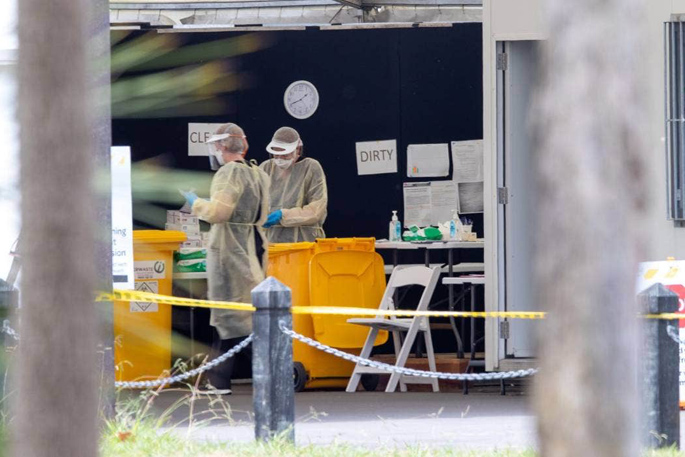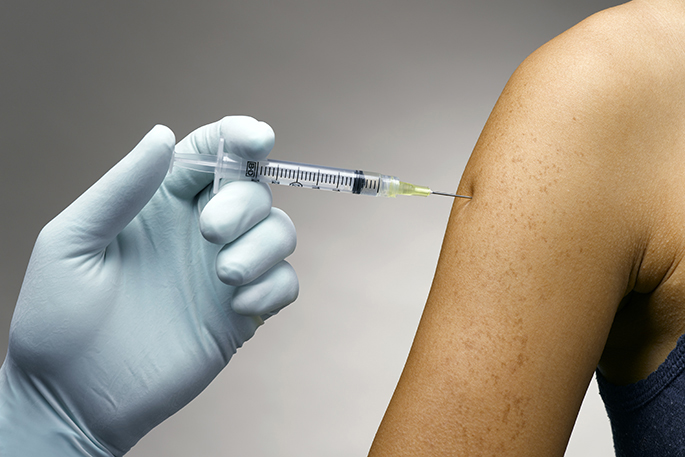Developing a Covid-19 vaccine was a result of unprecedented global collaboration, but getting people to take it will take an act of local leader collaboration in vaccine-hesitant regions.
Ministry of Health statistics released this week revealed almost a quarter of all surveyed were hesitant about taking the Medsafe approved, Pfizer Covid-19 vaccine. Sixteen per cent said they will refuse it outright.
Massey University's Dr Jagadish Thaker, a communication lecturer who specialises in science messaging, says overcoming vaccine hesitancy in regions which have high rates of people declining vaccinations is key to ensuring uptake of the Covid-19 vaccine.
Jagadish says studies have showed a person who previously declined at least one vaccination will be less likely to take the Covid-19 but this can be overcome with repeated messages from trusted leaders and personalities.
'Building public trust and willingness to vaccinate against COVID-19 is as important as developing an effective vaccine,” he says.
This will be vital in areas where vaccine uptake is low.
Statistics from district health boards reveal these areas to be the West Coast has just 78.2 per cent of five-year-olds listed as fully vaccinated.
Northland sits at 78.5 per cent and Bay of Plenty at 85.3 per cent.
Jagadish says these areas need to have clear, repeatable messages from trusted community leaders to ensure the Covid-19 vaccine has a good update.
This can directly oppose strong, anti-vax messages.
'Anti-vaxxers keep repeating the same messages as often as they possibly can on any media they can,” he says.
'This is something scientists do not do well. 'We often think we have published that work and why do we need to repeat it, but it is important we do that.”
The Ministry of Health is already gearing up an information campaign targeted to Maori and Pasifika communities which tended to higher levels of vaccine hesitancy.
Deputy director-general, of Maori Health John Whaanga, says an information campaign has been developed specifically for Māori while Director of Pacific Health Gerardine Clifford-Lidstone says Pacific health leaders, academics and community leaders will be mobilised as trusted sources of information.
 Staff at the Founders theatre Covid-19 community testing site in Hamilton following the announcement of a local case. Tom Lee/Stuff.
Staff at the Founders theatre Covid-19 community testing site in Hamilton following the announcement of a local case. Tom Lee/Stuff.
On the streets of Bay of Plenty vaccine hesitancy is evident.
Out of ten people spoken to by Stuff on the streets of Tauranga, four said they did not intend to immediately take the Covid-19 vaccine but would wait and see what happens after others receive it.
The primary concern was a perception the vaccine had been rushed or developed too quickly even from people who supported vaccination as a whole.
Jagadish says that is the latest line anti-vaxxers have used, and it was present as a fear during the H1N1 (swine flu) vaccine development.
'Public perceptions of a rushed vaccine development or inadequate testing may lead them to question the safety of the vaccine and increase distrust with vaccination in general,” he says.
'Individuals rely on trusted sources of information to make judgments in uncertain information context, such as the rapid, multinational effort to develop a COVID-19 vaccine.
'Building public trust in scientific experts, particularly among historically disenfranchised communities who may already harbour high distrust with government and scientific elite, by building community relationships, is particularly important.”
Tu Turoa Manu medical centre practice manager Donna McArley says they are expecting to field questions from patients about the vaccine and will collate people's concerns to allow them to best answer queries.
She says they expect some to take the "wait and see” approach.
'There is not the same level of urgency as there is overseas,” she says.
Deputy head at the University of Auckland's school of population health, Professor Chris Bullen, says New Zealanders can take reassurance in the safety of the vaccine due to its use overseas.
England, which topped four million cases of Covid-19 and 117,000 deaths, has just celebrated vaccinating 15 million people.
'There's very few serious side effects for people to be concerned about,” says Chris.
Stuff spoke to two adult care workers who were among the first million to receive the Pfizer vaccine. They say the peace of mind it gave was enormous despite suffering some very mild side-effects.
One suffered a headache and the other a sore arm for a day.
They say they have seen the public opinion switch towards getting vaccines, particularly in younger people as more information comes to light.
'People at my work had refused it,” says one of them. 'Then people in the family caught it, or they know of deaths or someone seriously ill in hospital.
'There's been quite a change over the last month with people saying they wish they didn't refuse it.”



0 comments
Leave a Comment
You must be logged in to make a comment.